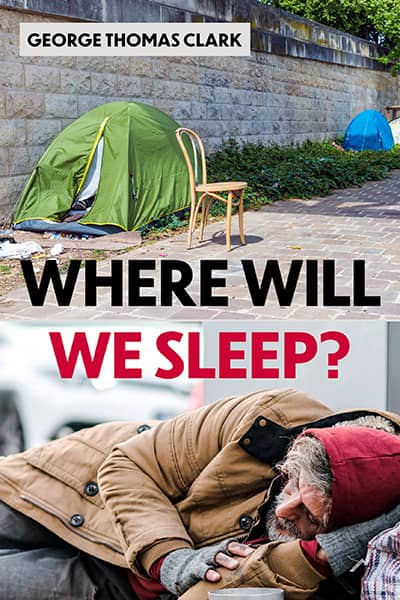Trees stand everywhere and seem greener here than in most places and the air is fresh and clean. It doesn’t matter Los Angeles has the dirtiest air in the nation. Fifteen miles north, in Pasadena, you can breathe as trees caress you. This is indeed such an enchanting place that the railroad Huntingtons, and the Chandlers of the L.A. Times, and the Pattons of young George, Jr., and directors from Standard Oil, and many others built their primary residences here. With these privileged people came not merely a commitment to wealth and power but to culture and education. The Huntington Museum offers art treasures from both Old Europe and New America, and the Norton Simon Museum showcases a collection, anchored by Rubens and Van Gogh, superior to any acquired since World War II. Nearby is the former capital of live theater in the West, The Pasadena Playhouse, still a major venue. Also in the neighborhood is that powerhouse of scientific endeavor, Caltech. Go a little way on the other side of Old Town, the new district of stylish restaurants, shops, and galleries, and you come upon the Rose Bowl, Granddaddy of all big-game stadiums. And, of course, rolling through the heart of Pasadena is Colorado Boulevard, primary route of the robust Rose Bowl Parade.
A couple of blocks south of Colorado Boulevard, in an area of pretty brick and stucco offices and stores, rests shady Central Park where on this day more than two thousand people gathered to eat Thanksgiving dinner, though lunch would’ve been a more appropriate designation since the feast was scheduled for eleven-thirty. As I examined the food stacked on long tables forming a rectangle, I was reminded of an older Patton, the one in a uniform adorned by two pearl-handle revolvers. Prior to battle, he’d have appreciated such a precise and thorough buildup of supplies. Bearing handwritten labels on plastic or aluminum covers, all the sweet potatoes were huddled together, and so were the casseroles and beans and green beans and carrots and corn and mashed potatoes and pasta, and turning left the green salads and fruit salads and cranberry sauce and potatoes and hash browns, and turning left again the pies and cakes and cupcakes and cookies and brownies, and left again, soldier, the coffee and orange punch and fruit water and lemonade and water. Secure inside the perimeter, on a special set of tables, were the culinary stars of the event, the turkeys. A team of surgeons was carving them up.
About seventy yards away on a small stage stood a female disciple of Patton. She had been issuing orders into a microphone and listing objectives, not all being met, and she stated, “I’m a pregnant mother who’s been working sixteen hours a day for two weeks, and I need people to help me clean up from three to four p.m. We already have plenty of servers. Now we need volunteers to wash dishes.”
Within minutes, she announced the positions had been filled. I’d wanted to help but wasn’t sure where I’d be during that period. I told a volunteer bright with red lipstick that I needed some stories.
“I have so much to be grateful for,” she said. “I just saw a man here who lives in a park near our house. He can barely speak. I don’t know what’s wrong. I think he’s got some sort of autism. These people need help and so often they don’t know what they’re eligible for. And many times they don’t have any addresses where they can receive checks. The police are helping as much as possible. They regularly go around and talk to the homeless to make sure they understand all their options.”
I’d been reluctant to approach the guests of honor, fearing they’d consider my questions intrusive.
“Hi,” I finally said to a man in his forties. “Can I talk to you a little for a story I’m writing?”
“Sure,” he said, shifting his cane to his left hand and offering me his right. One leg of his worn pants was puffed out by a swollen knee.
“Can you tell me why you came to Thanksgiving Dinner in the Park?”
“It’s a nice, friendly atmosphere,” he said. “I appreciate that. I was homeless a couple of years.”
“You lived outside?”
“Yeah, my wife and I and our son. We’d been living in a motel for a few years. I did repairs there. Before that I was a union plumber a long time, worked at Disney, Warner Brothers, Hughes. The manager at the motel jumped in my face one day. I told him to bleep off. And he said get the hell out. We were on the street. Most of the time, we lived in a parking lot. All we had were blankets, an ice chest, and a grocery cart.”
“How did you eat?”
“I panhandled. Stood on a busy street corner near downtown LA and held a sign.”
“How much did you make doing that?”
“I usually brought in between forty and ninety bucks a day. The average was about fifty.”
“What did your sign say?”
“This is exactly what it said:
‘Homeless Family Turned Down By Welfare
Honest to God!
Can You Put Me to Work?
If not… Can You Please, Please Help?
We Are Sleeping on the Streets.’
(This story continues…)
Available at:
Amazon Kindle Edition
Amazon Paperback
Apple, Barnes & Nobles, Kobo, and Other Stores
And Wherever Books Are Sold
